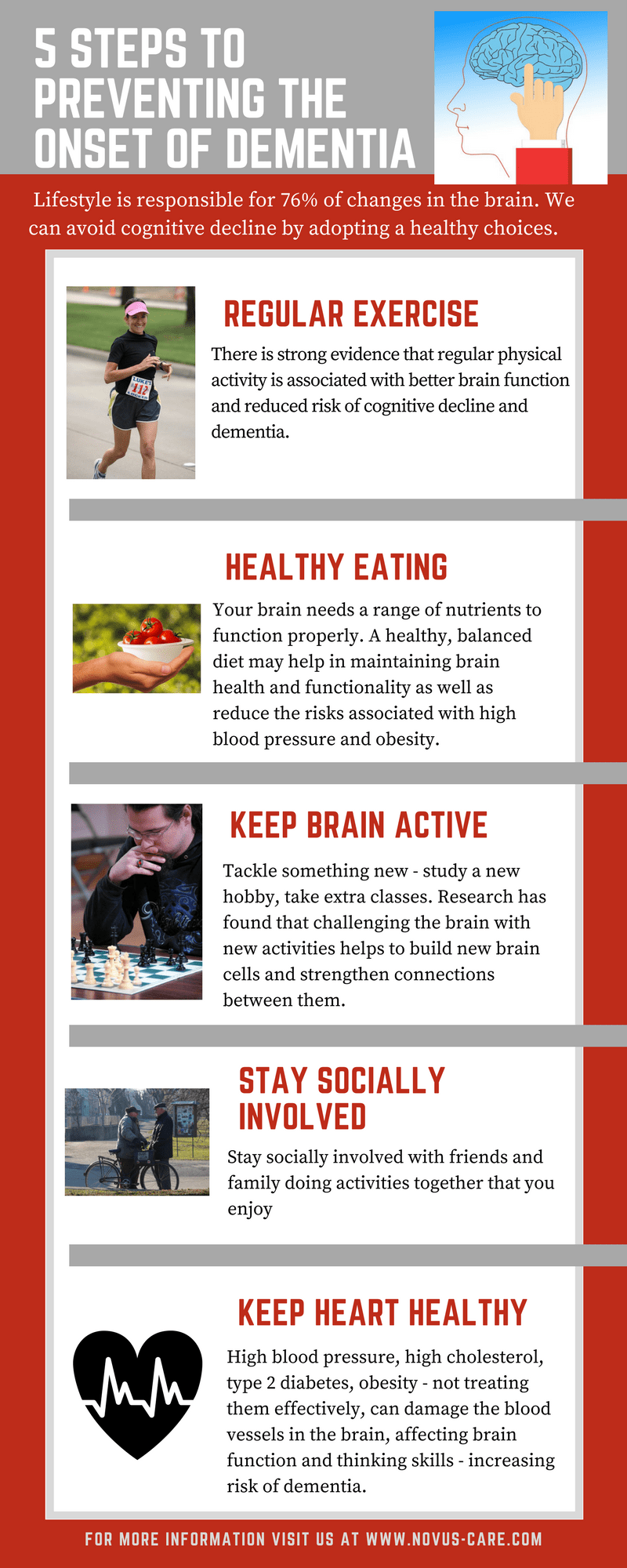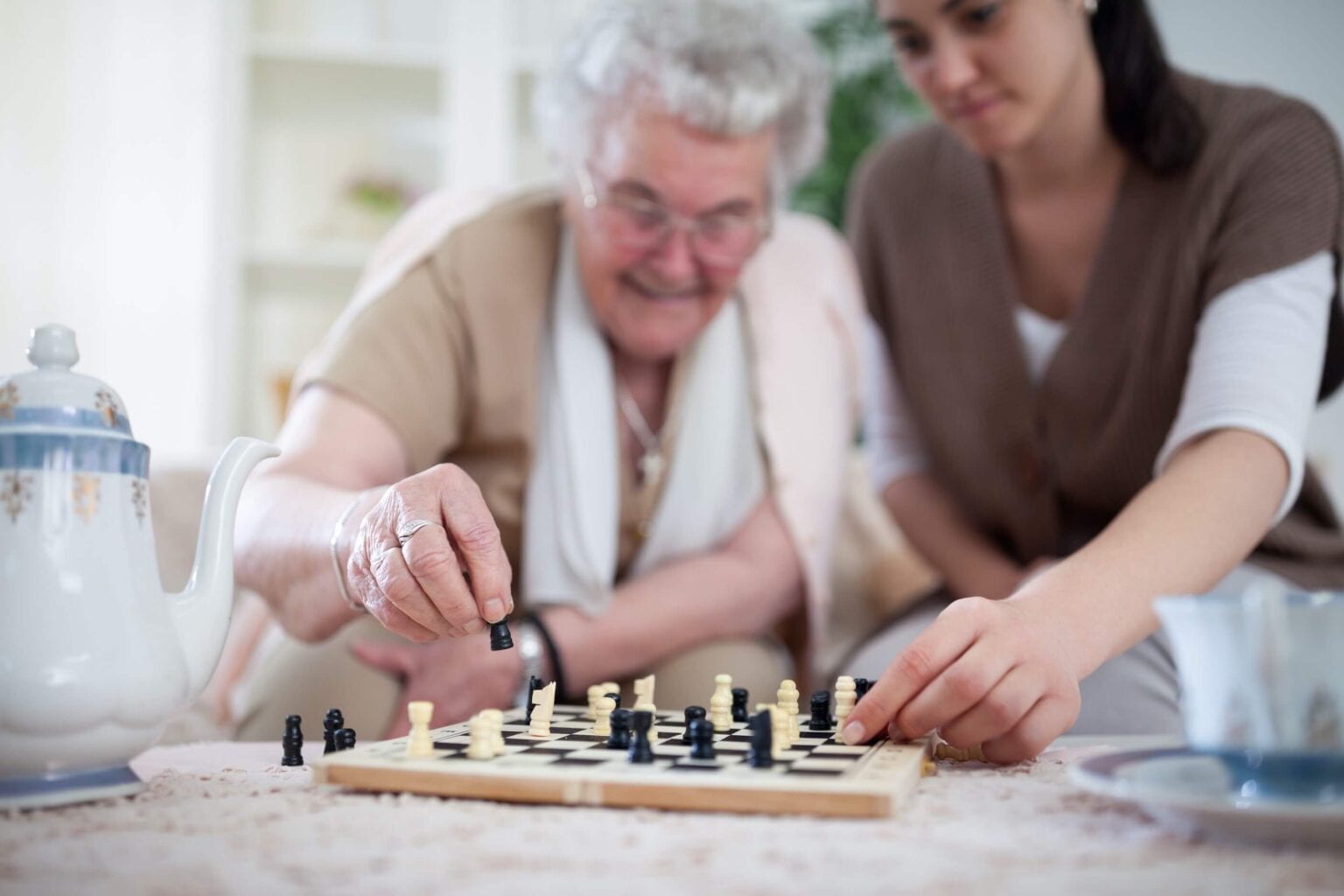Dementia describes symptoms of cognitive decline that may include memory loss and difficulties with thinking, problem-solving or speech. The onset often displays as small changes initially, but for the person with dementia the changes can be severe affecting daily life.
Dementia, as described by the Alzheimer’s Society is caused when the brain is damaged by diseases, such as Alzheimer’s disease or a series of strokes. Alzheimer’s disease is the most common cause of dementia. The specific symptoms that someone with dementia experiences will depend on the parts of the brain that are damaged and the disease that is causing the dementia.
Evidence strongly suggests that a healthy lifestyle, especially in mid-life, can help reduce the risk of dementia. Keeping our brains healthy is wise as there is no cure or treatment for dementia. Healthy living lowers the risk of developing dementia by more than a third – as many studies have found.
In this article we share lifestyle changes that can prevent or delay further decline in brain activity. Stimulating the brain has the power to slow progress particularly in the early stages of dementia. As we get older, many prefer to settle into a calmer lifestyle with fewer challenges. However, this is not what our brains want! Those that keep working past retirement years in jobs that challenge the brain to think are less likely to suffer dementia. Challenging ourselves to do entirely new activities such as learning a new hobby, language or creative skill go along way to keeping our brains healthy.
- Regular physical exercise increases your heart rate which in turn increases blood flow to the brain. Physical exercise whether aerobic, resistance or balance activities are all effective in warding off cognitive decline in healthy older people and reduce the risk of dementia.
- Healthy eating by following a balanced diet including fruit, vegetables, grains and healthy fats will help avoid obesity and high blood pressure.
- Quit smoking and excessive alcohol consumption – it never too late to quit smoking to reduce the chances of cognitive decline
- Get sufficient sleep – too little sleep will affect our physical health. Sleep is in involved in the repair of the heart and blood vessels so ongoing sleep deprivation can lead to heart disease and high blood pressure.
- Stay socially involved with friends and family doing activities together that you enjoy
- Challenge yourself – avoid falling into a comfort zone – play board games, do puzzles, attend quiz evenings, do mental maths rather than use a calculator. A good use of cognitive functioning through life is linked to reduced risk of cognitive decline later in life.
- Protect your brain – avoid head injuries by wearing a seat belt when you travel, wear a helmet or protective head gear when participating in motorised sports, cycling, skiing or contact sport – in fact any activity that suggests the use of protective head gear.
How to slow progress of dementia
Encourage a person in your care with early onset of dementia to engage in activities such as reading, writing, playing a musical instrument, board games and crossword puzzles. Activities where they interact with others are particularly effective. Even participating in daily chores around the house can be a form of mental workout. The important thing is to find an activity that they enjoy and are motivated to participate in regularly.
Simplifying their living environment to avoid stress and anxiety can also help – such as setting up online banking to pay bills, sticking to daily routines and familiar surroundings and do everything in moderation.

Dementia care when you can no longer cope
The reality though is that there are a growing number of people suffering with Dementia and the numbers are forecast to grow as our population of over 65 year olds increases. When someone with Dementia is faced with the difficult reality that their capabilities of coping with daily activities are steadily declining they often require support and reassurance.
At Novus Care our home care workers receive specialist dementia care training and they are committed to working with service users and their loved ones to ensure that their dementia care needs are being met whilst retaining their sense of identity and protecting their dignity and independence.
Dementia affects people in many different ways and our home care workers are trained to deal with the person and what the person can do as opposed to what they cannot do.
If you are struggling with dementia or finding it difficult to cope with a loved one at home with dementia, you are not alone. Whether you need help with daily practicalities, companionship or respite support, Novus Care are here to help.
Schedule a free assessment
Get in touch to speak with our care team about your ideal care plan.



